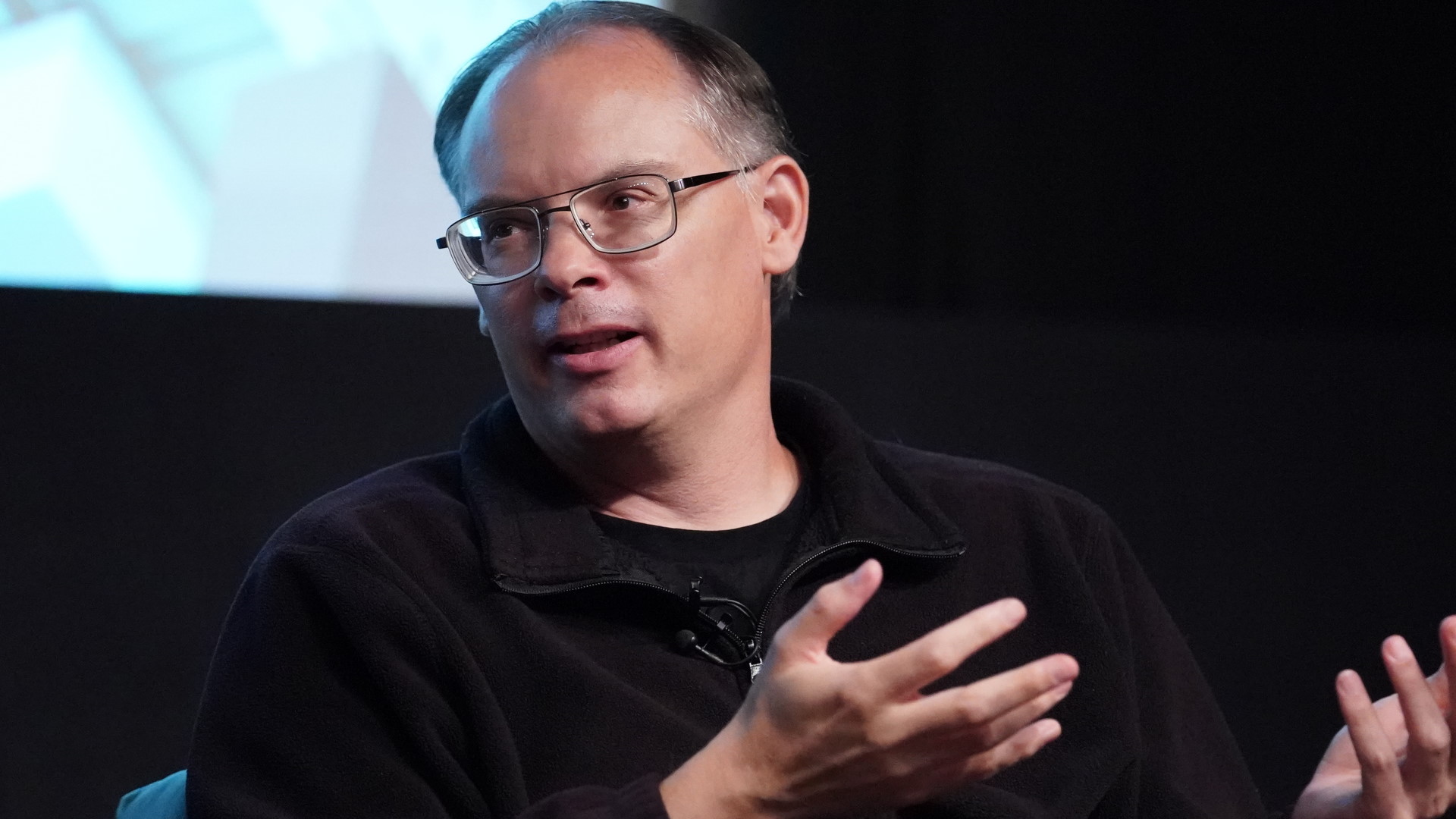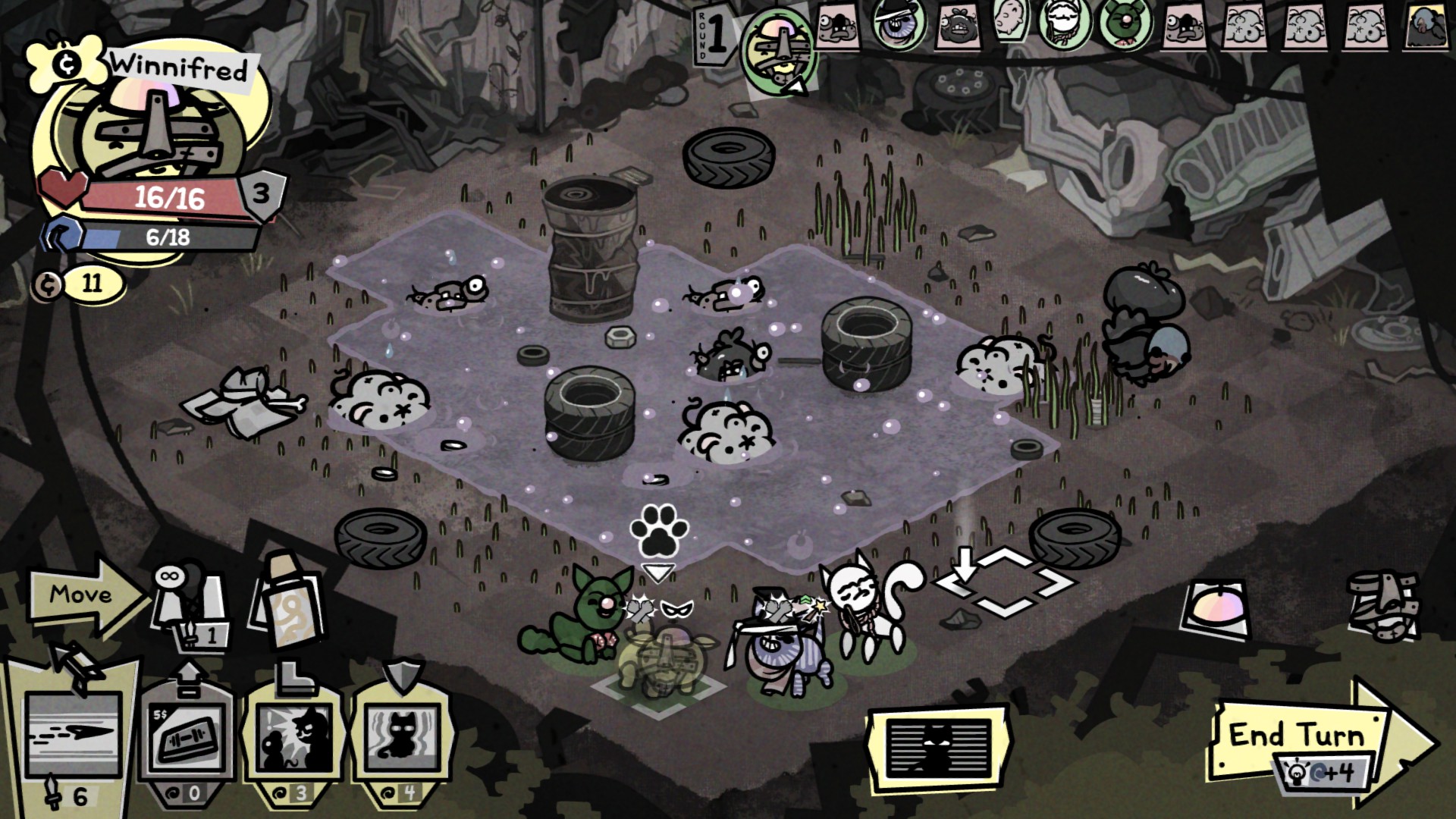Epic Games boss Tim Sweeney wades into the Arc Raiders AI voice debate with an imaginary scenario predicting 'infinite, context-sensitive, personality-reflecting dialog based on and tuned by human voice actors'
Sweeney says productivity increases driven by technology will lead to better games, not reduced employment.

Keep up to date with the most important stories and the best deals, as picked by the PC Gamer team.
You are now subscribed
Your newsletter sign-up was successful
Want to add more newsletters?

Every Friday
GamesRadar+
Your weekly update on everything you could ever want to know about the games you already love, games we know you're going to love in the near future, and tales from the communities that surround them.

Every Thursday
GTA 6 O'clock
Our special GTA 6 newsletter, with breaking news, insider info, and rumor analysis from the award-winning GTA 6 O'clock experts.

Every Friday
Knowledge
From the creators of Edge: A weekly videogame industry newsletter with analysis from expert writers, guidance from professionals, and insight into what's on the horizon.

Every Thursday
The Setup
Hardware nerds unite, sign up to our free tech newsletter for a weekly digest of the hottest new tech, the latest gadgets on the test bench, and much more.

Every Wednesday
Switch 2 Spotlight
Sign up to our new Switch 2 newsletter, where we bring you the latest talking points on Nintendo's new console each week, bring you up to date on the news, and recommend what games to play.

Every Saturday
The Watchlist
Subscribe for a weekly digest of the movie and TV news that matters, direct to your inbox. From first-look trailers, interviews, reviews and explainers, we've got you covered.

Once a month
SFX
Get sneak previews, exclusive competitions and details of special events each month!
Epic Games boss Tim Sweeney has waded into the furor over the use of generative AI for videogame voices, saying the technology presents an "opportunity for in-game voice and voice actors," with games that could potentially have "infinite, context-sensitive, personality-reflecting dialog based on and tuned by human voice actors."
The exchange began with a comment on Eurogamer's Arc Raiders review, written by freelancer Rick Lane—also a contributor at PC Gamer—who took issue with the game's "inexcusable" use of AI-generated voices. "Political opinions should go into op eds folks," Sweeney wrote, seemingly overlooking the fact that reviews very much are opinion pieces.
In a follow-up post, Sweeney doubled down: "This technology increases human productivity in some areas by integer multiples, and views on whether this is a net good and should be rewarded, or bad and should be fought against, are speculative and generally distributed along political lines."
I'm not sure that's accurate—my perception is that the divide isn't along political lines so much as it is between billionaires (like Sweeney) who tend to view generative AI as a way to crank out more content with less expense, and pretty much everyone else. But he went on to share some other thoughts on the matter, explaining why he thinks criticism of generative AI is misplaced.
"Since the author [of the review] states the pessimistic case, I’ll put the optimistic one here," Sweeney wrote. "Game developers compete to build the best games in order to attract gamers. When tech increases productivity, competition leads to building better games rather than employing fewer people."
When another user pointed out that the rise of generative AI is in fact depriving voice actors of work, Sweeney said there's "an even bigger opportunity for in-game voice and voice actors" in the future of AI than there is in simply acting.
"Instead of games having a few dozen or hundred lines of pre-recorded dialog, how about infinite, context-sensitive, personality-reflecting dialog based on and tuned by human voice actors?" he wrote.
Keep up to date with the most important stories and the best deals, as picked by the PC Gamer team.
"I've always found pre-written lines of fixed dialog super limiting. It was painful to write text dialog in ZZT in 1991 after writing more dynamically-composed text adventure games in the 80's! AI dialog generation + human personality and tuning could totally transform gaming."
I've always found pre-written lines of fixed dialog super limiting. It was painful to write text dialog in ZZT in 1991 after writing more dynamically-composed text adventure games in the 80's! AI dialog generation + human personality and tuning could totally transform gaming.November 11, 2025
I suppose it could, but Sweeney's argument strikes me as, well, flimsy. What is "tuning," as opposed to training, something voice actors have furiously opposed because of the threat it poses to their livelihoods? What happens when that "human personality" is no longer viewed as an essential part of the formula? And of course there's the fact that all of this is entirely hypothetical, what-if stuff that doesn't address the actual criticism but merely brushes it off.
It's fair to say that generative AI isn't ready for prime time just yet, but it's definitely moving in that direction, and that movement has provoked a range of responses: Pocketpair Publishing boss John Buckley, for instance, stated flat-out in October that Pocketpair won't publish games built using generative AI, while Junghun Lee, CEO of Embark Studios parent Nexon, seems to be embracing AI just because everyone else is.
Electronic Arts CEO Andrew Wilson, by comparison, has effusively high hopes for AI-powered game development, saying in 2024—after the bong rip hit—that EA is "AI-native" and he envisions a future in which "3 billion players around the world" are set to "creating personal content and expanding and enhancing the universes that we create," using—of course—EA's own AI technology. Take-Two CEO Strauss Zelnick has a somewhat more measured take, saying that AI can be a powerful tool for business but is inherently "backward looking," which means it's fundamentally unable to actually create anything.
Sweeney's remarks, to my reading, aren't too far off Zelnick's: Humans create, AI manipulates. But the cavalier dismissal of criticism of generative AI as it actually exists right now, and not how it might be in some imaginary future, isn't great. Ironically, Sweeney seemed to acknowledge those concerns in another reply tweet: When X user doubttom, whose post began the exchange, wrote, "Progress marches on but haven't we seen it enough times in the past where we can do better for the people being affected now?" Sweeney replied simply, "Yep." On that point, at least, I have to agree.
Arc Raiders Field Depots: Where to find 'em
Arc Raiders Field Crates: How to use 'em
Arc Raiders dog collar: Train Scrappy
Arc Raiders best skills: Survive the surface
Arc Raiders Expeditions: Retire your Raider

Andy has been gaming on PCs from the very beginning, starting as a youngster with text adventures and primitive action games on a cassette-based TRS80. From there he graduated to the glory days of Sierra Online adventures and Microprose sims, ran a local BBS, learned how to build PCs, and developed a longstanding love of RPGs, immersive sims, and shooters. He began writing videogame news in 2007 for The Escapist and somehow managed to avoid getting fired until 2014, when he joined the storied ranks of PC Gamer. He covers all aspects of the industry, from new game announcements and patch notes to legal disputes, Twitch beefs, esports, and Henry Cavill. Lots of Henry Cavill.
You must confirm your public display name before commenting
Please logout and then login again, you will then be prompted to enter your display name.


